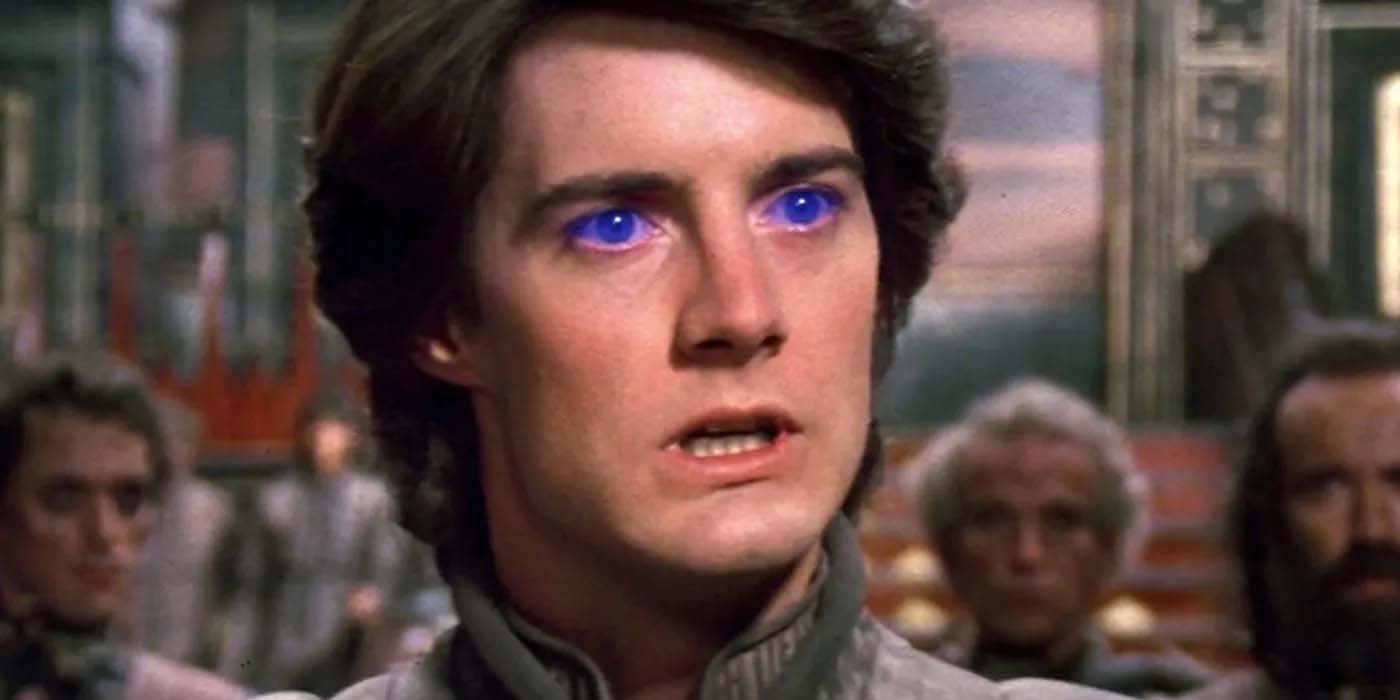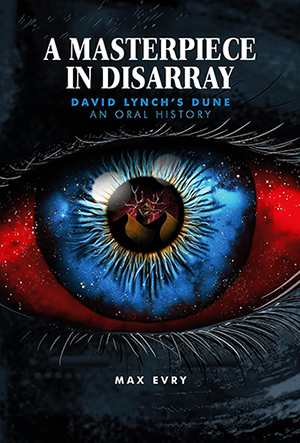
Josh Reviews Dune: A Masterpiece in Disarray

I first saw the 1984 Dune at a late-night screening in college. I was immediately captivated. I didn’t exactly understand the movie, and it was clear to me that not everything worked. But there was something in the film that took deep hold on me. After seeing the film, I tracked down and read all six of Frank Herbert’s Dune novels, which I have re-read many times over the years. I am a huge fan of the two Sci-Fi channel Dune mini-series from 2000 and 2003 (Dune and Children of Dune), and of course I loved both of Denis Villeneuve’s films. Both of those subsequent Dune adaptations (the Sci-Fi Channel miniseries and Mr. Villeneuve’s films) are arguably better and more faithful adaptations of Frank Herbert’s novel, but still there’s something about David Lynch’s 1984 Dune film that keeps me coming back. I’ve rewatched it many times over the years.
I’ve often described the 1984 Dune as “a great bad movie”. I actually don’t think it’s bad. “Flawed” might be a better description. It’s filled with all sorts of weirdness that can be off-putting. The narrative can be hard to follow — there are so many characters and events squished in; it feels like a story happening on fast-forward (especially in the second half; there’s just way too much story squeezed in here). The use of voice-over narration (letting us hear characters’ thoughts) is at best overused and at worst laughable. Many of the special effects are janky. The ending is abrupt and comes out of nowhere.
BUT! There’s also so much I love about this film!! I love how weird and strange it is! I love how the film is reaching for a somber, stately, epic tone, rather than a more crowd-pleasing Star Wars style adventure. I love the gorgeous production design. There are so many incredible sequences that are seared in my memory: the first glimpse of the third stage Guild Navigator; the Baron bathing in grease and blood after pulling the heart plug out of one of his servants; the whole sequence in which Max von Sydow’s Liet Kynes takes Leto, Paul, and Gurney out to see a spice harvester and they encounter a worm, and so much more. Frankly, even many of the sillier lines and sequences are so memorable that I love them despite their silliness. This is an extremely quotable movie! The incredibly unique score by Toto is wonderful and so memorable. I could go on and on.
Clearly Max Evry is someone who loves that 1984 Dune film even many degrees more than I do! Mr. Evry has assembled an incredibly in-depth look back at that film: it’s origins, its production, its post-production, its release, and its legacy. Dune: A Masterpiece in Disarray is a hefty tome. Mr. Evry has taken a very, very deep dive.
Personally, I loved it! I was impressed by how thorough Mr. Evry was in his research, and by how he was able to get interviews with so many of the key creative figures in front of and behind the camera… including Mr. Lynch himself!! David Lynch has basically disowned this movie over the years, repeatedly saying how painful it was and still is for him. He doesn’t like to talk about it. And yet, somehow Mr. Evry was able to get Mr. Lynch to sit for an interview, which is included towards the end of the book. Beyond Mr. Lynch himself, the oral history sections in the book are incredibly robust. It’s fun and fascinating to hear from so many of the people who worked so hard on this film. I’ve read a lot about this movie, and I’ve watched a lot of DVD special features and other documentaries (including the recent feature-length documentary “The Sleeper Must Awaken: Making Dune” that was included on the film’s most recent blu-ray release). And yet there were so many stories in this book that I’d never heard before!
While there are a few sections where I felt Mr. Evry might have been stretching a bit (do we really need to hear from multiple artists of Dune art prints?), I found myself enjoying and being interested in even those sections. Personally, I read this book front to back, but this is also a book that I think would work well if you wanted to jump around and pick sections that interest you. It could work both ways. But again, I read every word, and I loved it. I was sad when this 500+ page book was over!
My only complaint is that I thought there was something a little weird about the book’s structure. It’s broken down into four main sections: pre-production, production, post-production and release, and legacy. That makes sense. But within each of those section, Mr. Evry begins with several chapters of prose description, before then entering into the (lengthy) oral history he’s compiled. The result was that the book occasionally felt a little repetitive, with some stories covered in Mr. Evry’s prose summary and then again in the oral history. I’m not sure why those sections weren’t combined, with some descriptive text woven throughout the oral history to give context and additional background information when needed. I think that would have felt smoother.
What I most enjoyed about the book was Mr. Evry’s love for the 1984 Dune film, despite its flaws, which pored off of every page… and also the love that so many of the people interviewed, who worked so hard to make this film, continue to feel for it. In the end, interestingly, while I think this book has a terrific title, after reading it and following all the twists and turns of the creation of this movie, I think that title is a bit of a misnomer. I don’t think the 1984 Dune is a “Masterpiece”, but I love it nonetheless. And while clearly there were challenges in the film’s production and especially its post-production that weakened it, and Mr. Lynch did lose control of the film because contractually he did not have “final cut” and so had no choice but to edit the film down to a shorter run-time (a process that almost everyone interviewed in the book thinks hobbled the film, and I am inclined to agree), it also doesn’t seem to have been a production that was ever in “disarray”. That surprised me to discover! The film’s flaws, and it’s failure upon its original theatrical release, weren’t due to a production in disarray, but rather to many other wounds, large and small. I encourage you to read this great book if you want to discover the story!
Please support my website by clicking through one of my Amazon links the next time you need to shop! As an Amazon Associate, I earn from qualifying purchases. That means I’ll receive a small percentage from ANY product you purchase from Amazon within 24 hours after clicking through. Thank you!
Please help support my site by purchasing a copy of my latest comic book, Brother’s Keeper, which tells a true story from Israel’s 1948 War for Independence. Click here to order a print copy, or click here to read it FREE on Kindle Unlimited!!
OR, click here to order a copy of my graphic novel, José and the Pirate Captain Toledano, a story of Jewish pirates that’s also a powerful coming-of-age story about “finding one’s tribe” and one’s place in the world.
